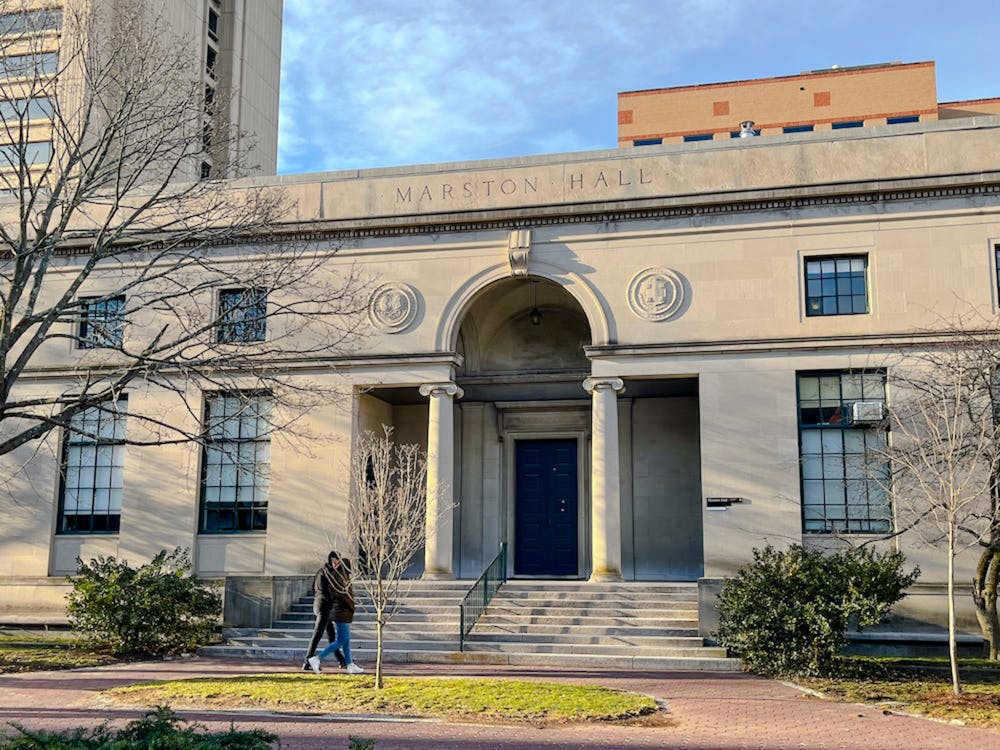Victoria Richter, adjunct professor of Slavic studies, was scrolling through her laptop at the International House of Rhode Island, a local nonprofit organization, when her phone lit up from the table. It was a message from one of Richter’s English students, explaining that she had lost access to a computer and could not complete her upcoming assignment. Improvising, Richter turned to her laptop, took pictures of the assignment and sent them to her student.
“I work from the moment I wake up to the moment I go to bed,” said Richter, who is currently teaching English language classes for Ukrainian refugees through the Pawtucket Public School Department’s adult education program. “I take it hour by hour.”
Richter began teaching these free, online English language classes for Russian-speaking adults at the onset of the COVID-19 pandemic, working with around ten students at the time. In light of the Russia-Ukraine conflict, she has shifted her classes to cater specifically to the influx of Ukrainian refugees in New England. Just two weeks into the program’s shift, Richter is working with 40 refugees and hosting beginner and intermediate-level English lessons with the help of six University undergraduates and alums.
“We have to help students who are beginners, so there is more preparation involved — more Russian speaking to them, explaining to them what is going on,” Richter said. Instructors have to be “very sensitive to what we say and how we say it. … (Our) language has to change, methods have to change and some content has to change.”
“The shift has been pretty big,” said Adam Dieck ’24, an undergraduate student who helps Richter with her classes. “The level of English (the new cohort) has in comparison to the immigrants that we were previously working with is much lower, so we had to restructure” the classes, Dieck said.
To accommodate the increased number of refugees and their schedules, Richter now teaches four lessons per week rather than two. Aside from undergraduate students, she is aided by University alums, including some who Zoom into classes from as far as Turkey and Israel, she said.
Richter first offered undergraduates the opportunity to be involved in teaching the classes last fall, specifically to students enrolled in her course RUSS 1110: “Special Topics in Russian Studies I: Advanced Reading and Conversation.”
“I saw it as an opportunity for students from my class to pitch in and get some teaching experience and to be exposed to native speakers who don’t speak perfect English,” she said.
Dieck and Laurel Meshnick ’23.5 are two of the undergraduates involved in the program. They began last semester by shadowing Richter’s classes but are now making lesson plans and teaching classes on their own, picking up extra hours that Richter is unable to cover.
They “stole the program from me,” Richter joked. The University recently approved a grant for the program that will allow University students to be paid for their involvement rather than working as volunteers.
“I think teaching experience itself is always invaluable, … so that has been great for me with developing my teaching skills and interacting with (different) people,” Dieck said. “It’s really great to be able to apply something that I never really thought I would be able to use outside of the classroom.”
Dieck noted that he also learns from his students by listening to their “powerful” stories. “It’s been incredible to get to know these people,” he said.
“I knew that I was interested in working with immigrants or refugees and perhaps (English language) teaching, so I wanted to explore this for my career,” Meshnick said. Over time, “we got close with the ladies in the program, … and now it’s just a little bit of a community.”
Both Meschnick and Dieck often go to dinner at Richter’s house with the students from their classes. The group also regularly attends the music performances of Richter’s band, which raise money to support Sloika Bakery, a bakery in Kolomyia, Ukraine that has remained open throughout the conflict.
“I imagine that we would want to create a similar community” for the new refugees, Dieck said. Though it is more difficult because this group is scattered more broadly across New England, Dieck said that allowing the refugees to connect is top priority for Richter.
A “connector” at heart, Richter said she is always looking for new ways to bring together refugees with similar experiences. She plans to institute a schedule where students have the opportunity to join Zoom meetings at least an hour before class in order to chat and get to know one another before lessons begin.
“With the new Ukrainian refugee group, it’s more important than ever that the classes also function as a support system,” Meschnick said.
For Svitlana Zozulia, taking Richter’s classes has benefited everyday life. “Our classes give us an opportunity not to be afraid to start talking to people, shop at stores (and) look for a job,” she wrote in an email to The Herald.
“This project allows us to learn English (and) to adapt (to) the new country,” wrote Svitlana Ilicheva, one of the refugees taking Richter’s classes, in an email to The Herald. “We can talk to the people with the same mentality and in our native language (and) get emotional and psychological support.”
Going forward, Dieck hopes the program will continue to grow, even beyond his time at the University. “The influx of Ukrainian refugees is not going to slow down any time soon,” Dieck said. He hopes to see more Brown students brought into the program as teachers so they can “continue to service” the refugees.
Though Richter is taking her work hour by hour, she is excited by what she has been able to accomplish and the future potential of the project.
“This is my first experience being able to do something so meaningful,” she said, and be “a tangible help to the people.”

Alex Nadirashvili was the managing editor of multimedia and social media for The Brown Daily Herald's 133rd Editorial Board. As a former University News editor, he covered faculty, higher education and student life, though his proudest legacy is The Brown Daily Herald TikTok account.





